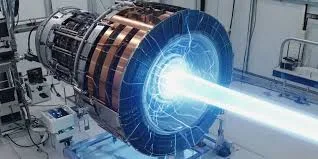
The Crucial Roles of Physics, Chemistry, and Mathematics in Engineering
Physics, chemistry, and mathematics are the foundational pillars upon which the field of engineering is built. These subjects provide the essential tools and understanding needed for engineers to design, analyze, and create innovative solutions to real-world problems. Let’s delve into the specific roles of each:
Physics
- Understanding of natural phenomena: Physics provides a deep understanding of fundamental laws governing the universe, such as motion, energy, forces, and matter. This knowledge is crucial for engineers working in fields like mechanical, electrical, and aerospace engineering.
- Material properties and behavior: Engineers rely on physics to understand the properties of materials and how they behave under different conditions. This knowledge is essential for designing structures, machines, and devices that are both functional and durable.
- Problem-solving skills: Physics teaches students how to approach problems systematically and logically, breaking them down into smaller, more manageable components. This problem-solving approach is invaluable for engineers who often face complex challenges.
Chemistry
- Materials science: Chemistry is fundamental to understanding the composition and properties of materials, which is essential for engineers designing everything from bridges and buildings to electronic devices and pharmaceuticals.
- Chemical processes: Many engineering processes involve chemical reactions, such as those in manufacturing, environmental remediation, and energy production. A strong understanding of chemistry is necessary to optimize these processes and minimize their environmental impact.
- Corrosion and materials degradation: Chemistry helps engineers understand the causes of corrosion and other forms of material degradation, allowing them to design products and structures that are resistant to these processes.
Mathematics - Modeling and simulation: Engineers use mathematical models to represent real-world systems and simulate their behavior. This allows them to predict outcomes, optimize designs, and identify potential problems before they occur.
- Data analysis: Mathematics provides the tools for analyzing large datasets, which is essential for understanding complex systems and making informed decisions.
- Precision and accuracy: Engineering requires a high degree of precision and accuracy, and mathematics provides the foundation for ensuring that calculations and measurements are reliable.
In essence, physics, chemistry, and mathematics equip engineering students with the knowledge and skills they need to excel in their field. By understanding the fundamental principles of these subjects, engineers can develop innovative solutions to complex problems and contribute to technological advancements.




